10 years, 10 partners, 10 stories: Marco Aurélio Constantino Read more
The framework of satellite clubs
The framework of satellite clubs and the potential it provides for clubs that do not have a B team was the subject recently addressed by Natacha Soares, consultant of BAS and associate of the APDD (Portuguese Sports Law Association), in the newspaper O Jogo, which we reproduce here.
A football club (the sponsoring club) that does not have a B team can create a new satellite club or enter into a sponsorship agreement with another club that plays in a lower division (sponsored clubs or satellite clubs). This agreement shall be valid for at least two sports seasons. Each club can only have one satellite relationship.
The agreements may provide for rules of close cooperation between the two clubs, opening up the possibility of transferring players between both clubs, within the limits set out in the sports regulations.
According to the applicable regulations, during each sporting season the sponsoring club may use, without limitation, professional players up to the age of 21 and up to three players above that age, registered in the satellite club, by the legal figure of a temporary transfer.
Potentials for all stakeholders
These agreements involve a number of advantages for stakeholders and players. Players loaned by the sponsoring club may have the opportunity to compete, maintain or regain their sporting fitness and gain experience. The satellite club can have access to players that otherwise they could never sign, possibly without paying their salary or paying only a part of these costs. Players on loan from the satellite club can experience the training and competition experience of a higher division.
In order to guarantee the transparency and impartiality of the competitions, the fate of these clubs is linked, insofar as the satellite club cannot compete in the same division of the sponsoring club, so if it is relegated to the satellite club’s division, the satellite club will also be relegated regardless of its classification.
Although the creation of satellite clubs is not frequent, and that some experiences in the past didn’t succeed, it seems to be an interesting figure and with a lot of potential for clubs that do not have B team.
Natacha Soares
APDD Associate n.º 240
More in Communication
- Public Protection
- law firm
- BAS
- Covid-19
- 10 years
- anniversary
- Best Lawyers
- Portugal
- Who's Who
- Video surveillance
- Privacy
- Minors
- Health and Sciences
- Public Policies
- Coronavírus
- Atividade
- Real Estate 2020
- Corporate Law
- Legal Persons
- Companies
- Professional Secret
- Confidentiality
- Changes
- Public Law
- Life Sciences
- Awards
- Labour Awards
- Law
- Exceptional Measures
- State Budget
- Contracts
- Iberian Lawyers
- Lay-Off
- Lay-Off
- Mental Health
- Stress
- Saúde mental
- Leaders League
- Actualidade Ibérica
- Almedina
- Idealista
- APMEP
- Congress
- MIPIM
- SIGI
- REIT
- Imobiliário
- Mozambique
- ICLG
- Moçambique
- Secrecy
- Professional secrecy
- Labor
- ILO
- International Labor Organization
- RCBE
- sociedades
- pessoas coletivas
- Expo Real
- National Health Service
- NHS
- Hospitals
- Book
- PhD thesis
- Schools
- CNPD
- Gig Economy
- Emprego Público
- Public Sector Employment
- Contratação Pública
- Staff Costs
- Fiscal Law
- PPC
- Whistleblower
- Direito Civil
- Flextime
- Direito da Saúde
- Family Law
- Environmental Law
- Global Mobility
- ranikings
- Medicina Law
- pessoas coletivas
- M&A
- Proteção de
- international
- Laboral Law
- Public Employment Law
- Health Law and Social Security
- Labour and Social Security Law
- Electronic Invoice
- Tax Law
- Civil Law
- Commercial Law
- Public Contracts
- Electronic Invoicing
- Gender Equality
- Medical Error
- Forty Under Forty
- Self-Employed Workers
- Competition Law
- Employment Law
- Directory
- law firms
- Digital Era
- Global Business
- European Congress
- medical law
- Money Laundering
- Transparency
- Personal Data
- Minimum Wage
- Healthcare
- Secutity
- State
- Labour
- Sport Law
- Employment
- Partnership
- Chambers and Partners
- Public Employment
- Directories
- Business Law
- Students
- Trainees
- Administrative Law
- Administrative Litigation
- Guide
- conference
- Local Housing
- Public Procurement
- Health
- Innovation
- Data Protection
- Advertising
- Medicines
- Medical Devices
- Sports Law
- Real Estate
- Fairs
- Sports
- Guides
- Ranking
- Lawyers
- Magazine
- Law School
- Job
- Sport
- Press
- Women's Human Rights
- Women
- Human Rights
- Independent Workers
- Health and Life Sciences
- Health Law
- Chambers
- webinar
- Infarmed
- Helpo
- Workshop
- Football
- Iberian Lawyer
- Equality
- Man
- Woman
- Equal Pay
- Real Estate Law
- Immigration
- Foreign Investment
- Jornal Económico
- Marketing
- Chambers Europe
- In-Lex
- Emails
- Golden Visa
- traffic accident
- Team
- Labor Law
- Social Security
- Em
- Labour Code
- Family
- GRDP
- Research
- Clinical Research
- GDPR
- Children
- Industrial Property
- Social Security Law
- Europe
- Award
- Health and Scieces Law
- Labour Law
- Right of Preference
- Civil and Labour Litigation
- Local Accommodation
- Lawyer
- Social Responsability
Changes to the Labour Code Read more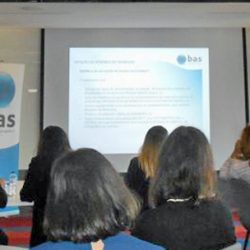
Cláudia Monge is a speaker at the Infarmed symposium Read more
Processing data of children and young people in light of the new GDPR Read more
Amendments introduced to the Labour Code Read more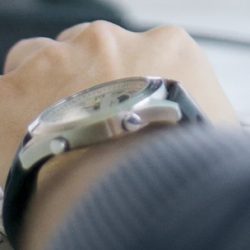
General framework of the new GDPR and national law – Of medical data in particular Read more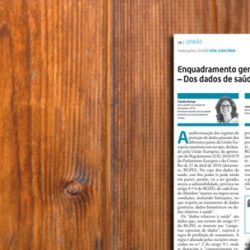
BAS shortlisted for the Iberian Lawyer Labour Awards Read more
Team BAS reinforced Read more
The consent of minors and the GDPR Read more
GDPR Organizational Technical Measure – What now? Read more
What has changed in the contribution regime for self-employed workers? Read more
BAS lawyers distinguished by Leaders League Read more
BAS lawyers at EELA meeting Read more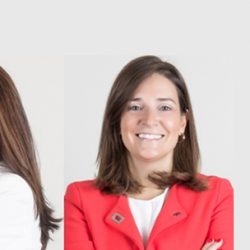
BAS and the outcomes of MIPIM Read more
BAS and Legalline Mozambique in Employment & Labour Law 2018 Read more
BAS grows stronger with the arrival of Isabel Sousa Castro as associate lawyer Read more
BAS ranked in Chambers Europe 2020 Read more
BAS is recruiting lawyers for specific areas Read more
The impact of the new Data Protection Regulation on the Schools Read more
Paris opens its doors in May to receive Portuguese real estate Read more
Company Agreement under the microscope Read more
Pedro Madeira de Brito Publishes Book on Labour Law Read more
Sports Law seen out of the box Read more
Smart work and the new trends on the labor sector Read more
Information session on the changes to the Labour Code Read more
Sports Law under analysis at the Faculty of Law of the University of Lisbon Read more
Summary of the ruling of the Supreme Administrative Court (First section) of 16.11.2017, case No 0935/17, rapporteur: Teresa de Sousa Read more
The reform of the employment contract of sports practitioners Read more
The new Equal Remuneration Law under review Read more
2019 Highlights Read more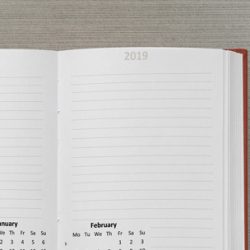
News from MIPIM 2019 Read more
Artur Filipe da Silva e Diogo Moreira Ramos author a chapter on real estate in Portugal Read more
Pedro Madeira de Brito distinguished by Best Lawyers Portugal 2017 Read more
Cláudia Monge contributes to the book The Secrets in Law Read more
BAS authors chapter on Labour Law in Portugal and Mozambique Read more
Developments in data protection and compliance can mean employment laws are quickly outdated Read more
BAS lawyers in the Best Lawyers’ Global Business edition Read more
BAS in the 14th In-Lex Edition Read more
Catholic Porto analyses the impact of the processing of personal data Read more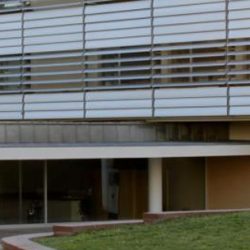
Catarina José focuses on the practical implications of GDPR Read more
New sports law magazine Read more
Advogar: BAS lawyers author a chapter on real estate in Portugal at ICLG Read more
Clinical Research and GDPR: Are compromises possible? Read more
Isabel Sousa Castro in the ranking Top 50 Iberian Lawyer Rising Stars Read more
BAS listed in the 15th edition of In-Lex Read more
Cláudia Monge analyses new data protection regulation Read more
Miguel Ribeiro dos Santos comments on teachers’ strike Read more
Data Protection: BAS joins APDPO Read more
The draft law for a new Industrial Property Code Read more
Claúdia Monge coordinates Medical Law course Read more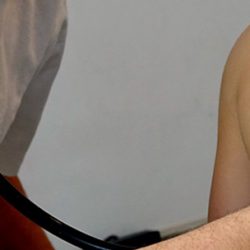
COVID-19 – Exceptional Measures for Public Procurement and Expenditure Authorization Read more
BAS on the directory Who’s Who in Business Law Read more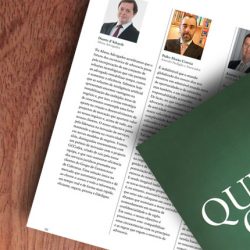
Beneficiary Central Registry BCR Legal Regime – What are the obligations of a Company After the First Declaration Read more
GDPR and consent for scientific research Read more
Local accommodation: will a global problem have a national solution? Read more
Press: Employment Law Webinar Read more
Press: BAS with five lawyers listed in Best Lawyers Read more
What changes with the new Local Housing Law? Read more
Iberian Lawyer Labour Awards Portugal 2021 Read more
New general regulation for data protection Read more
BAS in the In-Lex 2024 Yearbook Read more
Five lawyers of BAS were recognized in Best Lawyers Read more
Funchal debates Public Procurement and Litigation Read more
Pedro Madeira de Brito speaker at the ILO centenary Read more
BAS represents the Portuguese jurisdiction in Employment & labour 2018 in the International Comparative Legal Guide Read more
BAS in the Advocatus Search a Lawyer Guide Read more
Advocatus: BAS distinguished with The Best Health Law Firm 2018 Award Read more
JM Seminar: Sports Law and Sports Policies Read more
Cláudia Monge speaks about medical secrecy and secrecy in law Read more
Local Housing: Global Problem, National Solution? Read more
What is the forecast for the law market in 2022? Read more
Partnerships for innovation, for what and how? Read more
BAS celebrates its 10th anniversary Read more
Who’s Who in Business Law in Portugal: Dalia Cardadeiro’s expectations for 2020 Read more
Chambers Europe 2018 recognizes BAS partners in the area of Labor Law in Portugal Read more
New Challenges to Health Law Read more
Labour Law: changes to the Labour Code Read more
BAS and real estate trends Read more
New BAS services: Immigration and Foreign Investment Read more
New minimum wage and update of service contract values Read more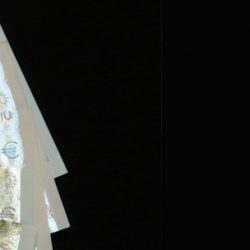
Advogar: BAS present at MIPIM Read more
BAS supports the 4th Public e-Procurement Congress Read more
The intriguing figure of the Data Protection Officer Read more
Key developments in the revised Public Procurement Code Read more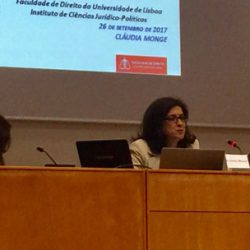
Cláudia Monge participates in a book celebrating the 40th anniversary of the NHS Read more
10 Key steps for compliance with the GDPR Read more
BAS at the European Employment Lawyers Association conference Read more
Isabel Sousa Castro joins BAS team (Advogar) Read more
Real Estate Consulting Read more
Press: Alexandra Almeida Mota practical talks about restructuring in Europe Read more
European regime of cross-border conversion (EU Directive 2019/2121) Read more
BAS celebrates its ninth year Read more
In 2019, there will be more changes in the contributory scheme for Independent Workers Read more
Exclusion of people from a football stadium Read more
Smart work: The Law and the new trends in the labour market Read more
Registrations open for the workshop on GDPR implementation Read more
Public Procurement and Innovation Read more
BAS authors a chapter on Mozambique at ICLG Read more
SB2020: Overall charges paid for service contracts Read more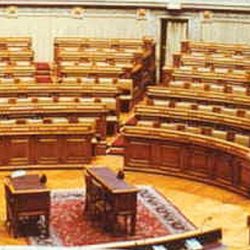
The changes in the Public Procurement Code Read more
Sports Law in 5 questions Read more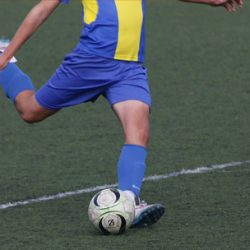
Health: When data protection demands special attention Read more
Leaders League ranking 2022 in Advocatus Read more
Master of Sports Law Read more
Vera Calheiros article in ECO Read more
Advocatus publishes the 2023 ranking of the best firms in the Leaders League Read more
BAS strengthens its team with the arrival of Luciana Sousa Santos Read more
Partner of BAS on the Best Lawyers’ directory Read more
BAS represents Portugal in EU Employment and Social Security Law Webinar Read more
BAS with three new trainee lawyers Read more
BAS presence in Expo Real 2016 Read more
EELA Conference 2017 Read more
Women in Law Read more
Sérvulo and BAS lawyers will debate about public procurement in Funchal Read more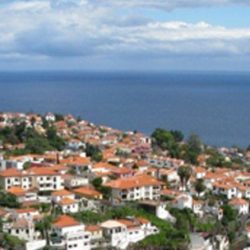
Effects COVID-19: Extension of deadlines for implementation of electronic invoicing in public contracts Read more
BAS Portuguese Simplified Lay Off Guide at Iberian Lawyer Read more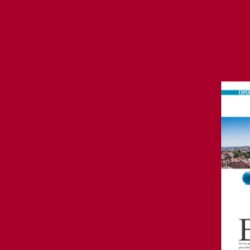
Summer Course on General Data Protection Regulation at the University of Lisbon School of Law Read more
BAS in the 13th In-Lex Edition Read more
BAS joins the Helpo sponsorship program Read more
FDUL provides courses in Law, Finance and Justice of Sport Read more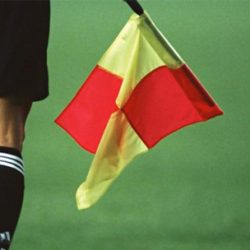
Preliminary consultation: the implementation of informality Read more
Updated Version: BAS Simplified Lay Off Guide Read more
Transparency in the advertising of medicinal products and medical devices Read more
Dália Cardadeiro in the Who is Who in Business Law in Portugal directory Read more
BAS integrates two associate lawyers and a consultant, strengthening strategic areas and betting on new areas of expertise Read more
New legislation to fight against money laundering Read more
Direct award and the re-enacting of prior consultation Read more
BAS lawyers at the annual EELA meeting Read more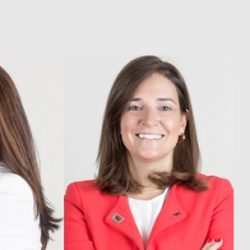
Football: The Right of Preference Read more
General Data Protection Regulation and Health Data Read more
Pedro Madeira de Brito co-authors the ‘Commentary on the European Convention on Human Rights and Additional Protocols’ Read more
How Portugal adopted the Real Estate Investment Trusts (REIT) regime Read more
BAS expert opinion at Iberian Lawyer Read more
Young lawyers and entry into the labor market Read more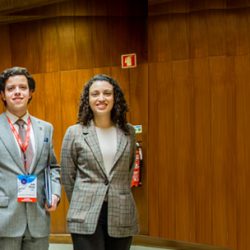
Public Health Policies in review Read more
BAS was present at Real Estate Fair in Paris Read more
New regime of Article 256-A of the Public Procurement Code Read more
Margarida Ferreira discusses European legislation and its application in Portugal Read more
Rebenta a Bolha! (The game is over) Read more
BAS in the Iberian Lawyer’s Lisbon Annual Report Read more
Press: BAS reinforces its team with two new associate lawyers Read more
BAS celebrates eight years Read more
Chambers and Partners recognizes BAS lawyers Read more
BAS and Sports Law Read more
BAS integrates lawyer José Luis Dias Read more
New rules for transparency in advertising Read more
II Workshop – The National GDPR Enforcement Act: What to Expect? Read more
Cláudia Monge will be a speaker at the conference on General Regulations for the Protection of Personal Data Read more
Cláudia Monge opens workshop intended to review the first year of GDPR Read more
COVID-19 – Support clients in times of mutual assistance of all and for all Read more
The new restrictions on loans of professional football players Read more
Data protection in Workshop Read more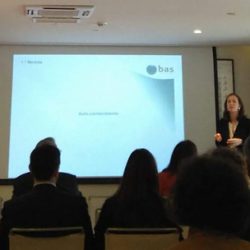
BAS debates restructuring processes in webinar on Labour Law Read more
BAS reinforces its team with three trainee lawyers Read more
Advogar: BAS distinguished with The Best Health Law Firm 2018 Award Read more
BAS no Anuário In-Lex 2024 Read more
BAS Agenda: 13th National Congress of Electronic Public Procurement Read more
Press: Best Lawyers distinguishes Portuguese law firms and lawyers Read more
The right to health and the fulfillment of the person Read more
The recent changes in the assumption of multiannual liabilities by NHS entities Read more
Do you still receive advertising emails to which you did not give consent? Read more
Video surveillance, GDPR Implementing Law and the Labour Code Read more
ICLG: BAS writes about Labour and Employment Law in Portugal Read more
Who’s Who in Business Law Read more
General Regulation on Data Protection and the processing of personal data Read more
The Women’s Human Rights Summit Read more
BAS is recommended by Leaders League 2022 in Labour & Employment Read more
Catholic University’s Law JobShop: BAS at the market of opportunities Read more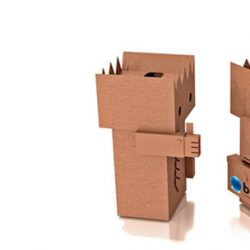
Public Procurement and Pre-contractual Litigation under discussion: Analysis and evaluation of the proposals Read more
BAS at the Portuguese Real Estate and Tourism Show in Paris Read more
Cláudia Monge in a conference in Sintra on Medical Error Read more
JM Sports Seminar: Pedro Madeira de Brito opens afternoon session Read more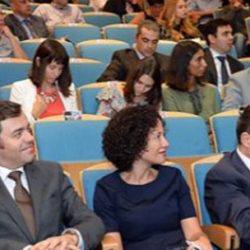
BAS at SIPP Read more
Real Estate Brochure Read more
Iberian Lawyer: “10 years of BAS Law Firm” Read more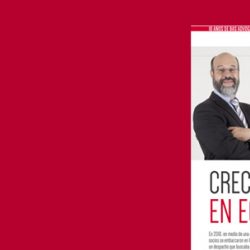
BAS organizes the workshop “Two years of General Data Protection Regulation. Are we ready?” Read more
BAS named the Best Health Law Firm 2018 Read more
COVID-19: Exceptional and temporary Measures in Response to the Epidemiological Situation Read more
Marco Real Martins nominated for the Forty Under Forty awards Read more
Portuguese companies at the Real Estate Show in Paris Read more
Debate and book on Public Procurement Legal Framework Read more
Healthcare security and State Civil Liability: imprisonment and mastery of guilt? Read more
BAS at the EELA annual conference Read more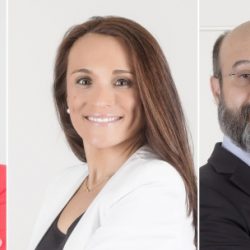
Pedro Madeira de Brito participates in the new edition of the Annotated Labour Code 2020 Read more
Advogar: BAS partners discuss Public Purchases in Health Read more
Take a step back and reassess your priorities Read more
Real Estate: BAS will be present at Expo Real in Munich Read more
BAS named Marco Aurélio as new partner Read more
